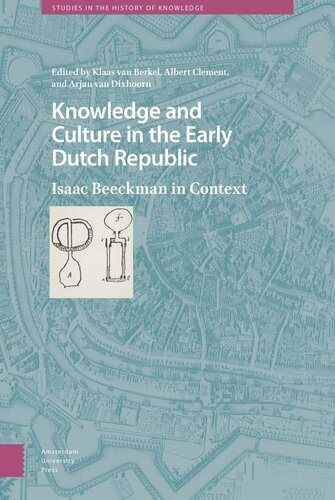

Most ebook files are in PDF format, so you can easily read them using various software such as Foxit Reader or directly on the Google Chrome browser.
Some ebook files are released by publishers in other formats such as .awz, .mobi, .epub, .fb2, etc. You may need to install specific software to read these formats on mobile/PC, such as Calibre.
Please read the tutorial at this link: https://ebookbell.com/faq
We offer FREE conversion to the popular formats you request; however, this may take some time. Therefore, right after payment, please email us, and we will try to provide the service as quickly as possible.
For some exceptional file formats or broken links (if any), please refrain from opening any disputes. Instead, email us first, and we will try to assist within a maximum of 6 hours.
EbookBell Team

4.0
26 reviewsThe Dutch Republic around 1600 was a laboratory of the Scientific Revolution of the seventeenth century. Here conditions were favourable for the development of new ways of knowing nature and the natural philosopher Isaac Beeckman, who was born in Middelburg in 1588, was a seminal figure in this context. He laid the groundwork for the strictly mechanical philosophy that is at the heart of the new science. Descartes and others could build on what they learned, directly or indirectly, from Beeckman. As previous studies have mainly dealt with the scientific content of Beeckman’s thinking, this volume also explores the wider social, scientific and cultural context of his work. Beeckman was both a craftsman and a scholar and fruitfully combined artisanal ways of knowing with international scholarly traditions. Beeckman’s extensive private notebook offers a unique perspective on the cultures of knowledge that emerged in this crucial period in intellectual history.